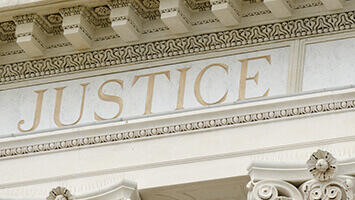
Justice Albin continued in relevant part: Article I, Paragraph 8 of the New Jersey Constitution guarantees that “no person shall be held to answer for a criminal offense, unless on the presentment or indictment of a grand jury.” The Court traces the history of the right to a grand jury presentation and the roles that grand juries play in the criminal justice process. The Court’s temporary suspension of in-person grand juries and jury trials was a public health imperative, but that suspension delays the criminal justice process with serious implications for the accused, whether detained or released pretrial, and the State. The question is whether all of the essential attributes of the right to a grand jury presentation can be preserved through a virtual format so that the grand jury can function and fulfill its historic purpose in the midst of an unprecedented public health emergency. In answering that question, it must be remembered that the framers of our State Constitution, like the framers of the Federal Constitution, created a founding charter “intended to endure for ages to come, and consequently, to be adapted to the various crises of human affairs.” See McCulloch v. Maryland, 17 U.S. 316, 415 (1819).
The grand jury is a judicial, investigative body, serving a judicial function and is an arm of the court. In New Jersey, the Judiciary exercises supervisory authority over grand juries to ensure that grand jury proceedings are fundamentally fair. See N.J. Const. art. VI, § 2, ¶ 3. The Court’s constitutional administrative authority extends to the power to issue rules and directives governing the grand jury and cannot be circumscribed by legislation. Grand juries are also the subject of legislation that, in many instances, overlaps with the court rules, and the Court acts with restraint when such legislation advances a significant governmental purpose and does not interfere with the Court’s administration of the court system.
The Court states that the virtual grand jury has upheld the grand jury’s historical function. If the principal function is the screening of charges for a lack of probable cause, it would be nice to see a statistic indicating that there have been virtual presentations that were no-billed as opposed to rubber-stamped.
